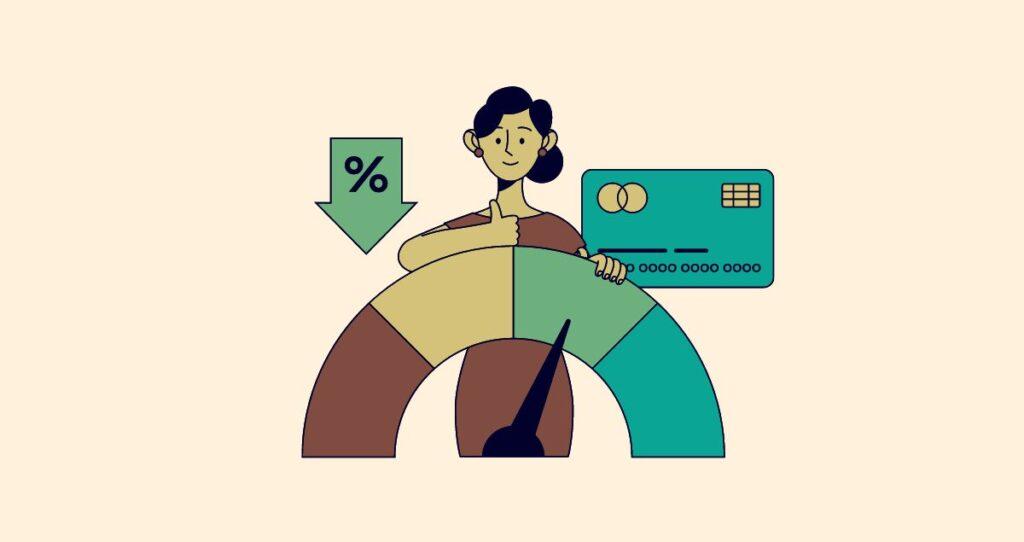If you have a lot of debt or many credit accounts, you know that it can be hard to keep track of your accounts. In many cases, you will often miss a payment. Missed payments or late payments will hurt your credit score and affect the health of your credit. Late payments are reported on your credit report and they stay on your credit report for a while. The question is how long do late payments stay on your credit report? The answer to this question will be discussed in this article.
Missed payments stay on your credit report for 7 years. No matter how late your payments are, they will not fall off your credit report until after 7 years.
Your payment history is the most factor in your credit score calculations. Lenders and major credit reporting bureaus(Equifax, TransUnion, and Experian) consider your payment history as the top factor. At the end of the day, if you cannot pay off your debts on time, you are automatically a bad borrower. This is also the reason missed payments stay on your report for 7 years. Payment history alone accounts for 35% of your credit score calculation. If you are rebuilding your credit and trying to increase your credit score, keep your eyes on your payment history.
How are credit reports calculated?
Lenders and companies that manage your credit accounts report your credit information to major credit reporting agencies. After receiving your information, major reporting bureaus will combine all your information into an easy-to-read and easy-to-understand document. This document will be your credit report.
Some information from your credit report such as payment history, new credit, collections, bankruptcies, tax-liens, cash write-offs, medical bills, evictions, credit utilization, etc. will be used to calculate your credit score.
There are many credit scoring models used by three major credit bureaus. The most common credit reporting models are the FICO score model and the VantageScore model. These models apply different weights to credit information from your credit report which results in different credit scores. Most lenders use FICO scores when estimating your creditworthiness.
Here is how long late payments stay on your credit reports
Missed payments stay on your credit report for 7 years. If you have many credit accounts, it is important that you keep track of your credit accounts’ due dates to make sure that you do not miss a payment. No missed payment is small. Whether you missed $2 or $10,000; they will still be reported as missed payments. In addition, they will all affect your credit score. It is not about the amount you missed, it is whether you paid on time or not.
Once you have a missed payment on your credit report, it will be hard to qualify for more credit. This is because missed payments lower your credit score and hurt your credit history.
How do late payments affect your credit score?
Besides staying on your credit report for 7 years, late payments also lower your credit scores. One late payment can lower your credit score by as much as 180 points. How much your credit score drops can be due to your payment history, credit score, and credit scoring models used.
According to Advantage credit repair services, a person with a credit score of 670 could drop as many as 150 points whereas a score of 780 can drop as much as 160 points. There are many factors that affect how many points you lose from late payments. If one credit scoring model applies less weight than the other, your score will drop fewer points than the score from models that put more weight on payment history.
Related: How does payment history affect credit score?
When is my payment considered late?
Just because you passed the due date of your payment, it does mean your payment is considered late. From the lender’s perspective, a past due payment is considered late and you may pay fees and charges based on your account conditions and terms of services.
However, a past due payment will not be reported to credit reporting bureaus until it is at least 30 days past due. That is your lenders will report past due payments as late payments only after 30 days from the due date. Before 30 days, that payment will not be reported to major reporting bureaus. For this reason, it will not affect your credit score.
Any payment that is more than 30 days past due will be reported to major credit bureaus and will be reported on your credit report. As a result, late payments will affect your credit score and credit health. On top of that, late payments will stay on your credit report for at least 7 years.
Things to know about late payment important dates.

If you have a late payment on your report, pay it off as soon as possible. The longer you delay paying off missed or late payments, the more they affect your credit score and wreck your credit profile. It is always easier to avoid hurting your credit than to repair bad credit.
Can you dispute late payments to credit bureaus?
When there is information that you think was reported in errors or inaccuracies on your credit report, you can dispute that information. This applies to late payments. If a late payment was mistakenly reported on your credit report, you can dispute it to major credit reporting bureaus, your lenders, or both. If your dispute is valid, your credit report should be updated based on the new findings.
However, if the reported information is correct, you might not have late payments removed from your credit report. That is late payments will stay on your credit report for 7 years.
Related: How to dispute an error on your credit report?
How do you know if a late payment was reported to credit reporting bureaus?
One way to know if late payments have been reported to major reporting agencies without checking your credit file is to evaluate how many days passed after the due date. Your lender will automatically report late payments 30 days after due dates.
You can also know if late payments have been reported by checking your credit report. You can easily get a free annual credit report from each credit reporting bureau once a year. If you want a free credit report, download your copy from: https://www.annualcreditreport.com/index.action.
Another option is to check your credit score. There are many ways to have a free credit score. The best way is to start from your account providers. Most creditors will let you view your credit score for free. You can also use free online services for free credit scores such as Credit Karma. Inside your account, they will show you factors that are affecting your credit score. Any missed payments will be listed in your account.
How to avoid late payments?
Although late payments stay on your credit report for 7 years and affect your credit score, you can avoid them. Yes, you can avoid late payments no matter how many credit accounts you have. The following are tips you can use to avoid late payments on your accounts.
- List your credit accounts by due dates and required minimum payments in your calendar. This will help you keep up with your accounts and prevent you from missing payments.
- Set up autopay. Autopay is one of the best ways to avoid late payments. Keep in mind that you must keep enough cash in your bank account to avoid overdraft fees.
- Change your payment due dates. If you are finding it difficult to keep up with multiple accounts due dates, change your due dates. Some people choose to have the same due date for all accounts. This way, you know all your payments will be done on the same day. For this tip to work, you need to have enough cash in your account. Otherwise, you may end up missing some or all your payments.
- Set up reminders or Write down notes and put them at a place where you see them every day
Final words
Late payments stay on your credit report for 7 years. If you have a past due payment, it does automatically gets reported to credit bureaus. Creditors report late payments when they are 30 days past due. Always make your payments on time. But, if you run dry on cash and missed a payment, try to make it up before the 30 days window to prevent it from being reported to major credit bureaus.
When your payment is 30 days or more from the due date, it will be reported to credit bureaus and will affect your credit scores. You can lose as many as 180 points from one late payment. But, the longer you ignore a late payment, the more it hurts your credit rating and your credit history. If you have a late payment on one or more credit accounts pay it off as soon as possible. The longer you hold it, the more it affects your credit health.
You can also void late payments by taking appropriate measures such as setting up reminders, changing due dates, and automating your payments.







